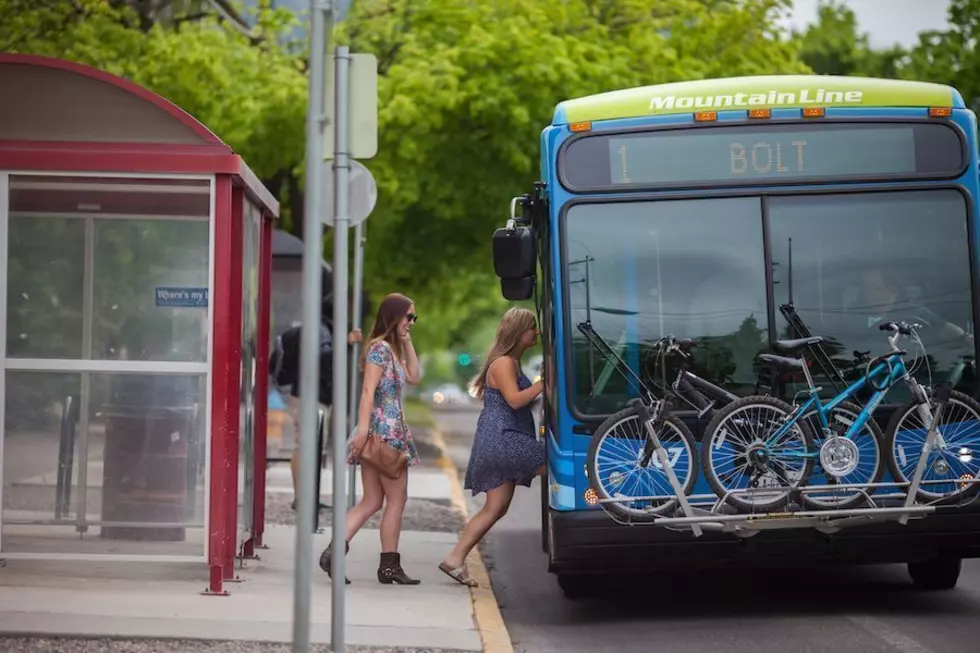
Mountain Line unveils plans for new bus shelters, signs and boarding areas
Aided by a federal grant and an increase in ridership, Mountain Line plans to begin a series of improvements scheduled to play out over the next year.
Community partners joined the transit agency in announcing the plans on Tuesday, which will impact every stop on the 12 fixed routes operated by Mountain Line.
“This part of the improvement project is in response to the growth and ridership we've experienced since Zero Fare came online in 2015,” said Corey Aldridge, general manager of Mountain Line. “Riders can expect to see improvements ranging from updated signage at all stops to new bus stop shelters, benches and trash receptacles at the most used locations.”
Among the changes announced during Tuesday's ceremony, Mountain Line will update its signs at bus stops across the city. It will also add or upgrade 18 shelters and add 68 accessible boarding areas.
The plans also call for upgraded seating a 51 bus stops and the consolidation of stops from 452 to 352. That will do away with underutilized stops and keep buses running on schedule, Aldridge said.
“Phase 1 will start this week and will continue all summer. It will impact our Bolt! Routes 1 and 2,” he said. “Phase 2 will begin in the fall and impact the remaining routes.”
The work is expected to wrap up next spring.
Mountain Line and a team of community partners introduced Zero Fare in the summer of 2015. Partners, including city and county government and some of Missoula's largest employers, covered the revenue once collected in boarding fares to make the buses free to all riders.
Since then, Mountain Line has seen its ridership numbers top 1.5 million a year. Between the implementation of Zero Fare and 2017 alone, ridership jumped 70%.
Numbers aside, advocates see the transit system as an essential way of life.
“This has been in the planning stage for several years and will improve every stop in the city,” said Andrea Davis, the executive director of Homeword – a partner in Zero Fare. “Mountain line is essential in reducing the cost of living for Missoula workers, elders living on fixed incomes, and kiddos needing to get around. When Zero Fare became a reality, we jumped on becoming a partner.”
The transit system also plays into the city's growth policies, where plans often bend toward access to a bus stop or trail system. Tuesday's ceremony was held near the Midtown district, which has seen its share of growth in recent years.
Ward 6 City Council member Julie Merritt said public transportation is vital to the city's larger plans around growth, equity and reduced emissions.
“This neighborhood has seen a lot of increased density of development, and the availability of sustainable transportation and public transit is a big part of making that density livable to people,” said Merritt. “I'm excited about the increase in accessibly for our community members with disabilities. It makes a huge difference for people to live independent lives.”
